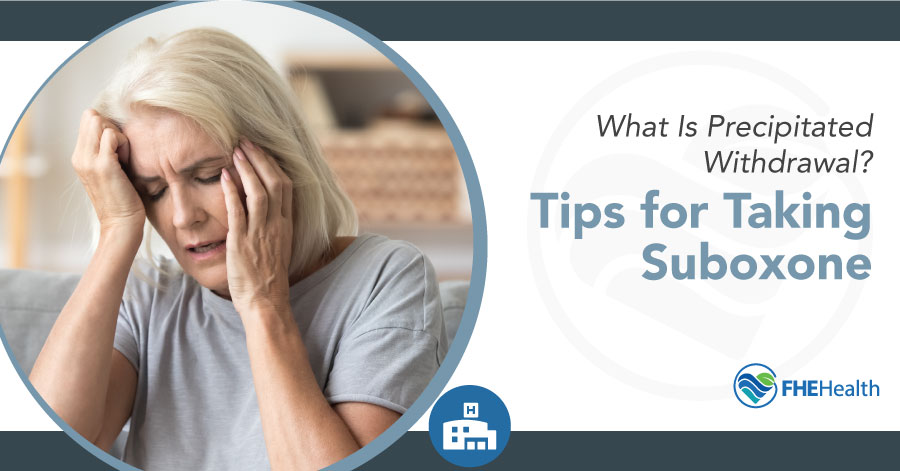
Opioid withdrawal isn’t an easy process — in fact, it can be so severe that merely hearing rehab veterans talk about it can make some users avoid treatment altogether. This is why drugs like Suboxone® — the brand-name medication that combines the active ingredients buprenorphine and naloxone — are so popular. These drugs offer a way to lessen the effects of opioid/opiate withdrawal. But Suboxone® withdrawal is also real and in some cases can be severe.
Picture this: You get a prescription for Vicodin, an opioid pain reliever, for pain after routine surgery. Because of the hyper-addictive nature of most prescription painkillers, a single month can be more than enough time for dependency to set in. You get a refill.
As you continue its use, you find it harder and harder to function without the influence of the drug, causing you to become physically dependent on it. One day, you decide you need to stop your opioid dependence. So you visit a clinic where you’re prescribed Suboxone® as the latest and best treatment for opioid use disorder (OUD).
But if you don’t wait long enough to take your first dose, it can be dangerous. Taking Suboxone® treatment after Vicodin, while the opioid is still in your system, can cause what’s known as precipitated withdrawal.
What Is Precipitated Withdrawal?
Precipitated withdrawal is a rapid and severe form of withdrawal that occurs as a result of certain types of treatment. In most cases, it’s caused by taking a medication like Suboxone® at the wrong time during recovery.
What Are Symptoms of Precipitated Withdrawal?
The symptoms of precipitated withdrawal mirror the signs of primary withdrawal from opioids and opiates such as heroin, morphine and prescription pain pills.
A person going through withdrawal may experience some or all of the following symptoms:
- Fever and sweating
- Muscle cramping and aches
- Nausea, vomiting and diarrhea
- Increased heart rate, flushing of the skin and dilated pupils
- Feelings of depression and suicidal thoughts
The severity of the withdrawal symptoms varies based on the length of the individual’s dependency or addiction and, in the case of Suboxone® withdrawal, the amount of the primary drug in their system when Suboxone® was administered.






